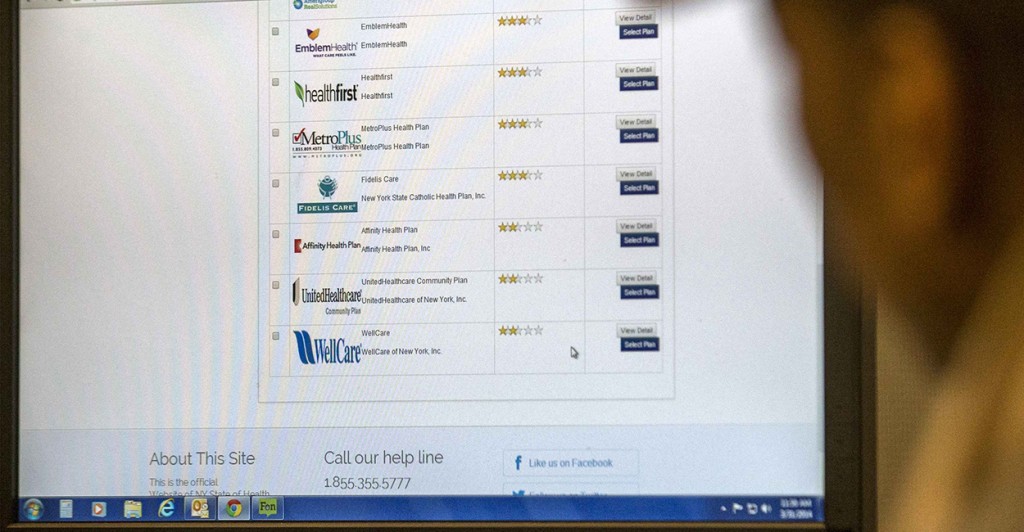Did Congress Lie About Key Facts to Obtain Obamacare Exemption?
Kate Scanlon /
Sen. David Vitter, R-La., wants to know why members of Congress and their staff are exempted from Obamacare.
“Washington insiders should be forced to live under Obamacare just like the rest of America without a special taxpayer funded subsidy,” says @DavidVitter
Vitter, who launched an investigation this week, said in a statement that “false information may have been filed with the D.C. Health Benefits Exchange to allow Congress to be exempt from [the] Obamacare exchange.”
The chairman of the Small Business and Entrepreneurship Committee cited a court filing obtained by Judicial Watch that admits Congress—with more than 16,000 employees—doesn’t fit the District of Columbia’s definition of a “small employer,” an organization with less than 50.
In order for Congress may remain exempt from Obamacare, Vitter alleges that “House and Senate officials submitted false information, including fake names, birthdays, zip codes, and had signed under the electronic signature claiming they had provided ‘correct answers to all questions.’”
Vitter has dubbed congressional exemption to the Affordable Care Act the “Washington Obamacare Exemption.” He said such an exemption defies “common sense.”
“Allowing Congress—which employs nearly 16,000 individuals—to determine itself as a ‘small business’ doesn’t pass the common sense test. We need to know exactly how and why this was allowed to happen so we can fix this injustice and eliminate Washington’s Obamacare Exemption,” Vitter said. “Washington insiders should be forced to live under Obamacare just like the rest of America without a special taxpayer funded subsidy.”
Health policy expert Robert Moffit, who has studied the congressional exemption, applauded Vitter’s investigation.
“Sen. Vitter’s investigation is exactly what is needed to uphold the rule of law and bring transparency to a regulatory process that has gotten way out of control,” said Moffit, a senior fellow for the Center for Health Policy Studies at The Heritage Foundation. “Such an investigation can provide the basis for legislation to stop the federal bureaucracy from picking winners and losers, at the expense of the federal taxpayers.”
Vitter is seeking answers from Karen Hass, clerk of the U.S. House of Representatives, Mila Kofman, executive director of D.C. Health Benefit Exchange Authority, and Ilena Garcia, the financial clerk of Senate Disbursing Office. He wants unredacted documents submitted by Congress to the D.C. Health Benefit Exchange Authority.
These documents “prove that someone within Congress knowingly falsified information in order for Congress to keep their Obamacare subsidy,” Vitter wrote.

Josiah Diamond of New York looks at health care plan options on a government health site while trying to enroll in a plan at the Community Service Society in New York, March 31, 2014. (Photo: Brendan McDermid/Newscom)
Heritage’s Moffit said that Congress should not be exempt from Obamacare:
It is fundamentally wrong to have one set of rules for Washington’s ruling class and another for the rest of Americans. When Congress enacted the Affordable Care Act of 2010 law and effectively voted themselves out of their own health insurance, congressional leaders panicked. Obviously fearing a politically damaging recorded vote in broad daylight, they intensively lobbied the White House for special taxpayer subsidies to offset the cost of their insurance.
Moffit said Congress exempted itself using bureaucratic federal Office of Personnel Management (OPM) regulations.
“In August of 2013, through OPM regulations, they succeeded in getting those subsidies and eventually had themselves—with salaries paid by the taxpayers—re-designated as ‘small business’ proprietors. An utter absurdity,” said Moffit, who worked at the personnel agency during the Reagan administration.
“There was no provision in either the Affordable Care Act or Chapter 89 of Title V governing the Federal Employees Health Benefits Program to authorize those subsidies,” he added. “They were simply created administratively by OPM.”
A Senate investigation, said Moffit, could shed light on lingering questions:
- Before August 2013, did the career staff of OPM at any time determine that OPM could or could not authorize these subsidies?
- Did OPM career staff believe that it was legal or proper to transfer funds out of the Federal Employees’ Health Benefits Program (FEHBP) for payment to health plans covering Congress and staff in a health exchanges?
- Were they at any time pressured to reverse their professional judgment by anyone in the White House or anyone in the congressional leadership?
- Was anyone in the agency told by the White House or Capitol Hill to create those subsidies and apply them in the way in which they were applied?
Moffit said career staff at the government personnel office, who are charged with upholding the civil service laws, should explain to Senate investigators what they independently determined to be their judgment on the provision of the special subsidies.
“A Senate investigation should closely question the OPM career staff, as well as the political appointees, secure all of the internal memos concerning the matter of the legitimacy of the subsidies themselves, particularly those of the OPM Office of General Counsel and the Office of Congressional Relations,” he added.
